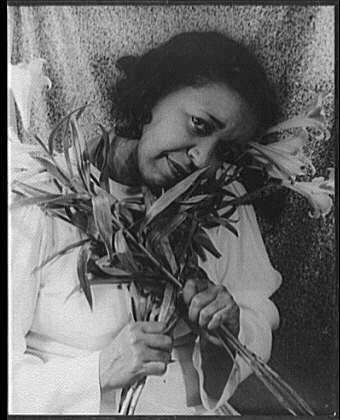Mary Lou Williams is probably the most
important female African-American jazz pianist. Williams was also a fine
songwriter and arranger and she worked with major figures in jazz including
Benny Goodman and Duke Ellington. Williams was born Mary Scruggs in Atlanta , Georgia
Williams played with Duke Ellington’s band,
The Washingtonians, in 1925. By the late Twenties she was pianist in the Andy
Kirk’s band, “The Twelve Clouds of Joy.” While with Kirk, Williams supplied the
band with the songs, “Cloudy,” and “Little Joe from Chicago
Williams became involved in the bebop
movement of the Forties and wound up as a mentor of sorts for the likes of
Dizzy Gillespie and Charlie Parker.
In the Sixties, Williams began recording
religious jazz music, and she continued recording prolifically until her death
in 1981.
Williams best recordings can be heard on
the following albums: “Mary Lou Williams Trio” (1944), “Signs of the Zodiac”
(1945), “Piano Solos” (1946), “Black Christ of the Andes” (1964), “Zoning”
(1974), “Mary Lou’s Mass” (1975), “The Chronological Classics: Mary Lou
Williams 1927-1940” (1995), “The Chronological Classics: Mary Lou Williams
1944-1945” (1998) and The Chronological Classics: Mary Lou Williams 1945-1947”
(1999).






